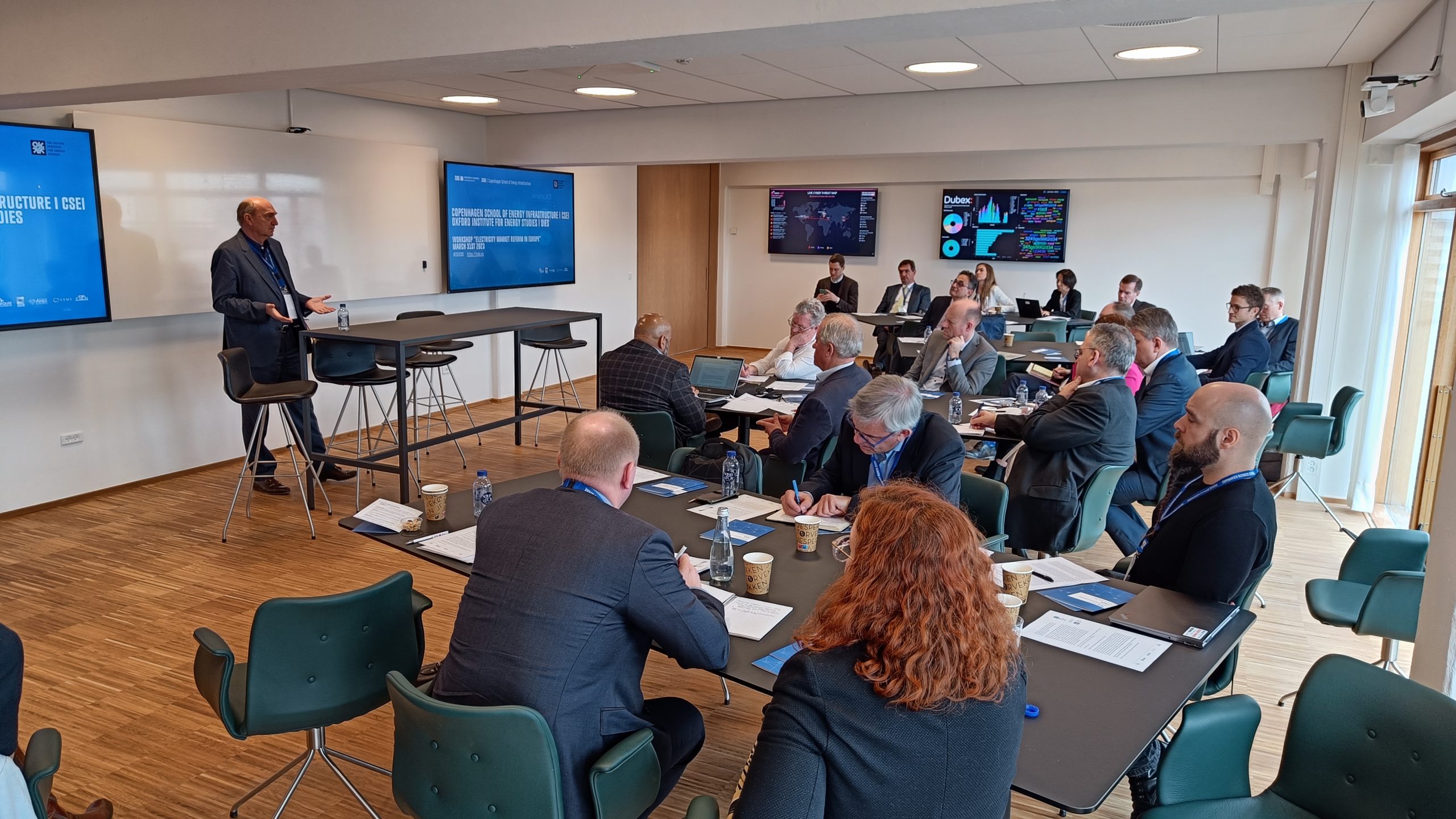The world is moving towards cleaner energy sources, and Europe is leading the way in this transition. However, the path to a decarbonized future is not without challenges. To address some of these challenges, the Copenhagen School of Energy Infrastructure (CSEI) and the Oxford Institute of Energy Studies (OIES) recently organized a workshop titled “Electricity Market Reform in Europe” on March 31, 2023, at the Copenhagen Business School.
The workshop was a success, attracting experts from academia, industry, and policymakers to discuss reform options for the European electricity market. The focus was on making the market fit for deep penetration of renewable electricity, which is essential to meet the goals of the Paris Agreement.
The event was kicked off by hosts Tooraj Jamasb (CSEI) and Rahmat Poudineh (OIES), who welcomed the participants and set the tone for the discussions that followed. The workshop was divided into three panels, each addressing a different aspect of electricity market reform.
The first panel focused on the relationship between electricity market design and network infrastructure. The panelists discussed how market design should consider the characteristics and limitations of the network infrastructure and how network infrastructure should be developed to support the goals of the electricity market, such as promoting competition, efficiency, and reliability. The question of how to mobilize and integrate decentral flexibility in the future proved to be controversial among panelists and the audience alike.
The second panel debated fundamental structural market reforms vs. incremental change. This discussion included the conundrum of maintaining an energy-only market while promoting deep penetration of zero short-run marginal cost energy. The panelists and the audience were split over the question of establishing a dedicated market segment for renewable electricity in the future.
Finally, the third panel explored government intervention in the electricity market. The experts provided insights into how to design government interventions that are effective, predictable, and minimize market distortions while still achieving policy goals. The discussion included recent market interventions in Europe, particularly in Spain and Great Britain, and participants’ opinions were rather mixed.
The workshop concluded with Tooraj Jamasb and Rahmat Poudineh summarizing the key takeaways from the discussions. Overall, the event provided a valuable platform for stakeholders to come together and discuss the challenges facing the energy market in Europe. It highlighted the need for reforms to make the electricity market fit for deep penetration of renewable electricity. The success of this workshop shows that collaboration and discussion are crucial in driving the transition to cleaner energy sources. CSEI and OIES would like to thank all the speakers and participants and look forward to continuing the discussion on the decarbonization of the European energy sector.

